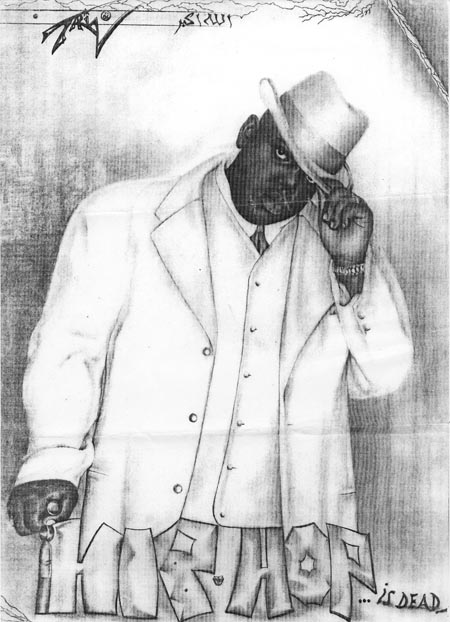
Hip Hop is Dead Until it Takes Up Revolutionary Politics
 Hip
hop culture began in the late 1970s, but it wasn’t until the middle to
late 1980s that the cultural life and expression of hip hop began to
grow and influence youth throughout amerika and the world. Many people
wrote this phenomena of hip hop culture as some fad that would soon
wither away.
Hip
hop culture began in the late 1970s, but it wasn’t until the middle to
late 1980s that the cultural life and expression of hip hop began to
grow and influence youth throughout amerika and the world. Many people
wrote this phenomena of hip hop culture as some fad that would soon
wither away.
During the late 1980s, early 90s, the era I coin the Black Consciousness era of hip hop, Black and Latino youth found a way to use hip hop to express their anger, fears, ideas, art and frustrations within the dominant white-oppressor culture, police brutality and poverty.
Hip hop culture isn’t just about the music, it’s about a lifestyle - from the clothes we wear, style of hair, taggin’ rail cars and walls with radical art and graffiti, unity and more. It’s a culture of resistance.
However, white-owned corporations saw a profit to be made and stepped in to co-opt the movement. Yes, a lot of us found a way to eat, but the result was a lack of potency in the music and a watered-down culture where cars and ICE are the motivating factor. It is a culture that is teaching our youth that it’s all about them (as individuals). That it’s cool to be a dope field (sippin’ syrup, etc.) and to be victims of HIV/AIDS (it’s ok to have multiple sex partners). Is there any wonder why the highest rates of HIV/AIDS are among Blacks and Latinos between the ages of 13-24?
Culture in general, and hip hop culture in particular, plunges its roots into the base of the material reality of the environment in which we live in the hoods and barrios and it reflects the organic nature of society, which is more or less influenced by the dominant white society and culture of our oppressed communities.
Can hip hop be a vehicle for revolutionary culture? Yes, it can be, but it is not now. Culture is an essential element of the history of a people, and it’s social development. Amilcar Cabral once has this to say about culture: “Study of the history of liberation struggles shows that they generally have been preceded by an upsurge of cultural manifestations, which progressively harden into an attempt, successful or not, to assert the cultural personality of the dominated people by an act of denial of the culture of the oppressor. Whatever the conditions of subjection of a people to foreign domination and the influence of economic, political and social factors in the exercise of this domination, it is generally within the cultural factor that we find the germ of challenge which leads to the structuring and development of the liberation movement.”
If hip hop is to transform into a true vehicle for social change, we must demand that our artists keep it a hundred and give us more analysis in their music. Stop promoting the use of addictive narcotics, that they become more active in our communities, and give our youth the encouragement to study, unify, and resist oppression. If they fail to do this, hip hop remains sterile and dead. Long Live 2Pac, Biggie Smalls, Eazy-E, Left Eye, Pimp C, Big Pun and all other hip hop artists that paved the way for the next generation to refuse and resist.








